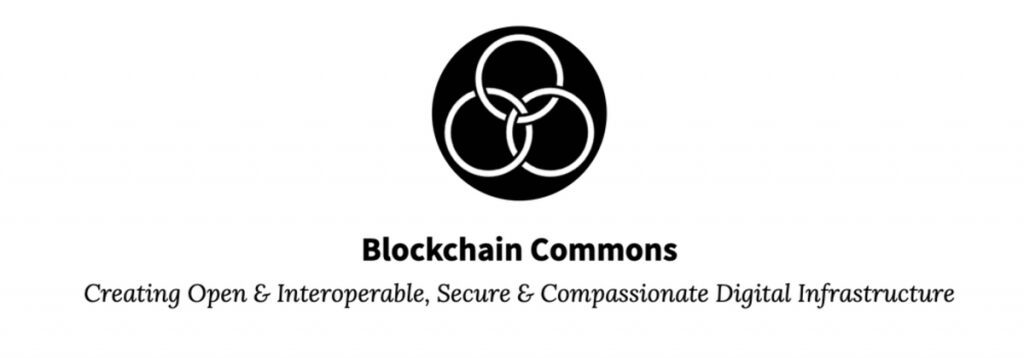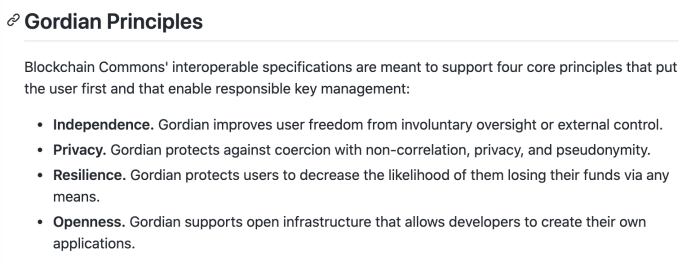The below is a direct excerpt of Marty’s Bent Issue #1144: “Gordian principles and software standards.” Sign up for the newsletter here.
I had the pleasure of sitting down and interviewing Christopher Allen and Wolf McNally from the Blockchain Commons project earlier this afternoon. Blockchain Commons is a group of open source developers focused on building open source tools and standards with interoperability in mind. I thoroughly enjoyed the conversation because it forced me to get back to first principles and think deeply about the precedents that are being set today by those building software that deals with an individual’s access to the Bitcoin network.
There are so many small details that have been abstracted away by wallet software that most users are completely unaware of when creating their key pairs. Is it a single sig or a multisig? What is the derivation path of the particular xpub you are using to produce receive addresses? Is your wallet software able to construct and/or broadcast pre-signed bitcoin transactions (PSBTs)? This may sound like gibberish to many of you freaks, but these small details matter. And, more importantly, keeping these small details in mind to loosely agree upon base level standards for those building wallet software so that users of different wallets can transact with each other seamlessly. With the overarching goal being to minimize the stress around securing sats while maintaining more than sufficient sovereignty and privacy.
The decisions we make today around best practices when building wallet software will have a material effect on the ability of users with different wallets to transact with each other with the utmost confidence. Creating standards that stay true to the Gordian principles put forth by the team at Blockchain Commons seems like a good idea to me.
Check out the podcast if you get a chance. I think you’ll learn a lot about the type of adversarial thinking that, when implemented effectively, adds to the accessibility and security of Bitcoin.



